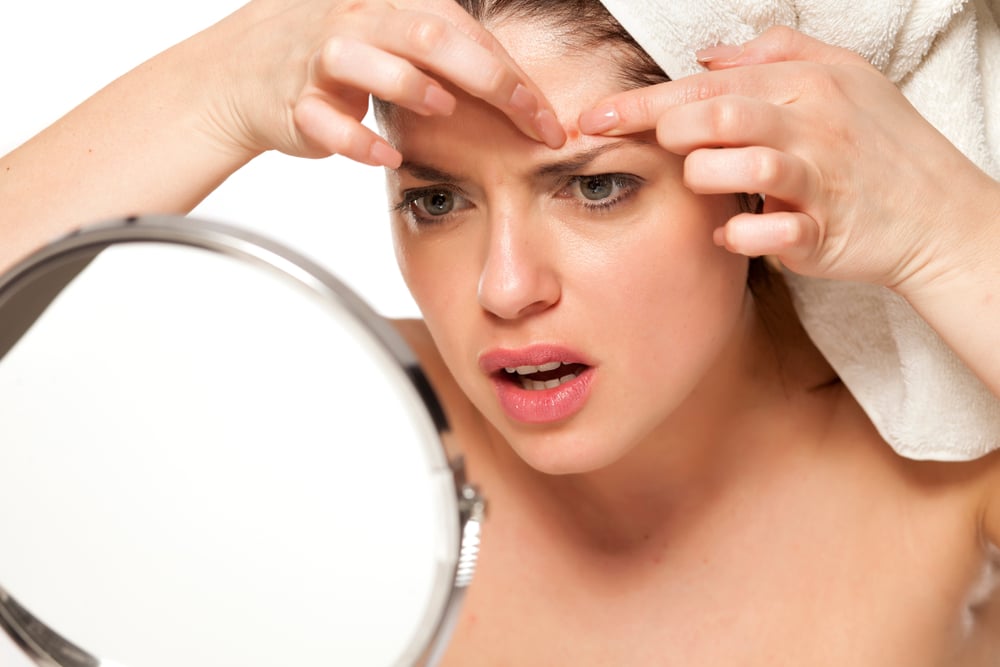There probably isn’t a person on the planet who hasn’t popped a pimple at least once in their lifetime, but the question remains:
Is popping pimples bad for you?
The following skincare experts have excellent advice for maintaining a clear complexion.
Pimples come in several varieties like blackheads and whiteheads. These are involved with blocked pores. Pustules are the bumpy-looking red kind of zits, and cystic acne lesions are the acne monsters, so to speak.
Avoid popping the cystic lesion type because you could end up with scarring and/or pigmentation issues, says Dr. Gary Goldenberg, a New York City dermatologist.

Why do we break out in pimples?
Acne is mostly genetic and runs in families. There is also a hormonal factor at play for both sexes. Hormonal unbalance leads to an overload of sebum, and that plugs up follicles and pores where pimples develop. Top that off with inflammation, and you’ve got acne in action.
Can we pop zits safely?
Skincare professionals don’t advise popping because you can interrupt any natural healing and even inflame the pimple further. NYC dermatologist, Dr. Shari Marchbein, says that squeezing a zit can cause darkening of the spot and take months to fade, and bacteria can lead to infection and lastly, scarring.
If you insist on popping pimples, there are some rules for doing it cleanly and safely. For one, wait until after your shower when pores are clean and open.
Arm yourself with wet gauze to place around the zit and another piece to use for wiggling the pimple and squeezing it. You want to draw out pus.
After that, apply witch hazel or an anti-bacterial serum or cream to keep the popped zit ultra-clean.
By the way, fingernails and the invisible germs they carry aren’t recommended for popping zits.

Are topicals effective for zapping zits?
Yes, the drugstore has a wide variety of pimple-busting formulas to quickly eliminate common acne.
Look for active ingredients like salicylic acid or benzoyl peroxide to attack your break-outs effectively.
If your pimples are deep ones that refuse to budge, a dermatologist can help. Acne can be injected with cortisone. Also, a high-frequency blue light treatment does wonder to help kill the bacteria.
Prescription Retin-A has long been used for developing a clear complexion, and the vitamin A derivative also keeps wrinkles and sun damage away.
Some people choose oral antibiotics to get rid of acne, including powerful doxycycline, clindamycin or erythromycin.
Can acne scarring be prevented?
Sometimes, acne scarring happens, and when it does, it’s difficult to soften it completely, but today’s advanced technology can help correct these issues. Microneedling treatments can add improvement along with lasers like Fraxel.
Even facial filler injections can temporarily smooth scarring indentations so that they’re less noticeable.
Always meet with a skincare expert to begin a course of treatment. The proper products and procedures can create a clear, radiant complexion no matter what age you are.







